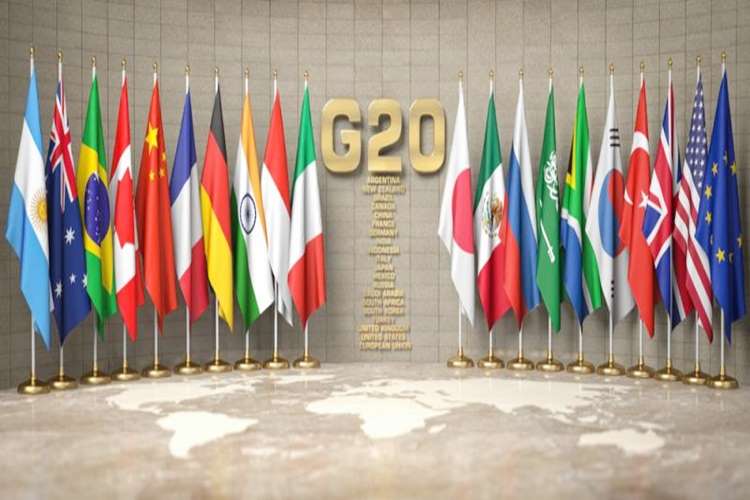While the G20 has maintained a tough stance on the ensuing Russian invasion of Ukraine, the problems within the forum run too deep for the countries to make any significant dent on the current geopolitical issues.
As was expected, the G20 communique in Bali echoed Prime Minister Narendra Modi’s earlier message to Russian President Vladimir Putin which condemned the ongoing war between Russia and Ukraine. Amid a year when the whole world is witnessing multi-dimensional crises, the leaders gathered in Bali adopted the G20 communique and most of them upheld their stance on aggression by the Russian Federation against Ukraine, demanding its complete and unconditional withdrawal from the territory of Ukraine. Other than a humanitarian concern, the ensuing war also had catastrophic economic impact, sending world economies in a disarray.
READ | Inflation cools, but RBI may continue with interest rate hikes
Emphasising the same, the G20 communique said that the war has intensified existing fragilities in the global economy such as constrained growth, increased inflation, disrupted supply chains, increased energy and food insecurity, and elevated financial stability risks. While there were dissenting views as well, such as from some members such as Indonesia, underlining that the G20 is not the forum to resolve security issues, most of the members maintained that security issues can have significant consequences for the global economy.
Earlier, PM Modi, in his statement to Putin in a bilateral meeting on the margins of the Shanghai Cooperation Organisation summit in Samarkand in September this year, had said that today’s era must not be of war.
Fragile world, divided G20
While the world was yet to recover from the coronavirus pandemic, this year also witnessed other shocks to the global economy. Climate change also caused an economic downturn with several countries reporting unprecedented extreme weather conditions which heightened food insecurity. Other challenges to economies remained with increased poverty, slowed global recovery, and hindered achievement of Sustainable Development. At such testing times, the G20 forum assumes even more significance.
However, economists are worried about the material impact that G20 may actually have, considering political divides within the forum. Policy Watchers have also said that historically, the G20 has worked best when there has been a galvanising crisis affecting everyone equally, akin to the financial contagion in 2008. However, the current circumstances are not affecting everyone equally, hence the divide. Analysts have highlighted that while the post-Covid economic recession was expected to bring the world together again, the current crises are not hitting every country in the same way, so there is no solution on which all sides can agree. And then there is the Ukraine war, and the US-Sino tensions over Taiwan.
What does the G20 aim to achieve now?
G20 has thrown some big words in its communique to demonstrate its future course of action. There are several major takeaways. First, the leaders have agreed in their declaration to pace interest rate rises carefully to avoid spillovers and have also warned of increased volatility in currency moves, a sea change from last year’s focus on mending the scars of the COVID-19 pandemic.
The members have pledged to adopt flexible macro-economic policy responses, while also making public investments and structural reforms. The group also wishes to promote private investments, strengthen multilateral trade and resilience of global supply chains, to support long-term growth. Amid growing concerns over climate change, the group has also recognised the need for sustainable and inclusive, green and just transitions.
Further, in view of the ongoing food crisis, the group has also decided to take action to promote food and energy security and support stability of markets. The leaders promised to take coordinated action to address food security challenges and also applauded the Black Sea grains initiative. The group said that it will take action on the global food crisis and save lives, prevent hunger and malnutrition, and particularly address the vulnerabilities of developing countries.
While it said that it will protect the most vulnerable from hunger by using all available tools, the course of action that the group intends to take may bear fruit after some time. It remains to be seen whether its efforts can be useful in solving the crisis at present.
Lessons from G7
Even while the communique focuses on issues such as digital transformation, post-Covid recovery and food security, analysts do not believe that it is likely to stretch beyond the non-committal platitudes that normally fill such statements.
READ | UK, Eurozone may slip into deep recession, US may avoid hard landing
G20 needs to take lessons from G7 to regain its status as a global governance powerhouse, and a more representative successor to the G7 as once hoped from it. The current division has led to shallowness in commitments unlike G7, which has been galvanised into action by a common ideology. The G20 members must also find a common ground and shared ideology to achieve what it was destined to be.
The G20 communique has maybe taken a cue from the criticism and recognised that it is essential that the members undertake tangible, precise, swift and necessary actions to address common challenges.
Indonesia has handed over the G20 presidency to India for the coming year. The G20 comprises 19 countries viz Argentina, Australia, Brazil, Canada, China, France, Germany, India, Indonesia, Italy, Japan, South Korea, Mexico, Russia, Saudi Arabia, South Africa, Turkey, the UK, the USA, and the European Union (EU). Together, the forum account for over 80% of the global GDP, 75% of international trade and two-thirds of the world population.

